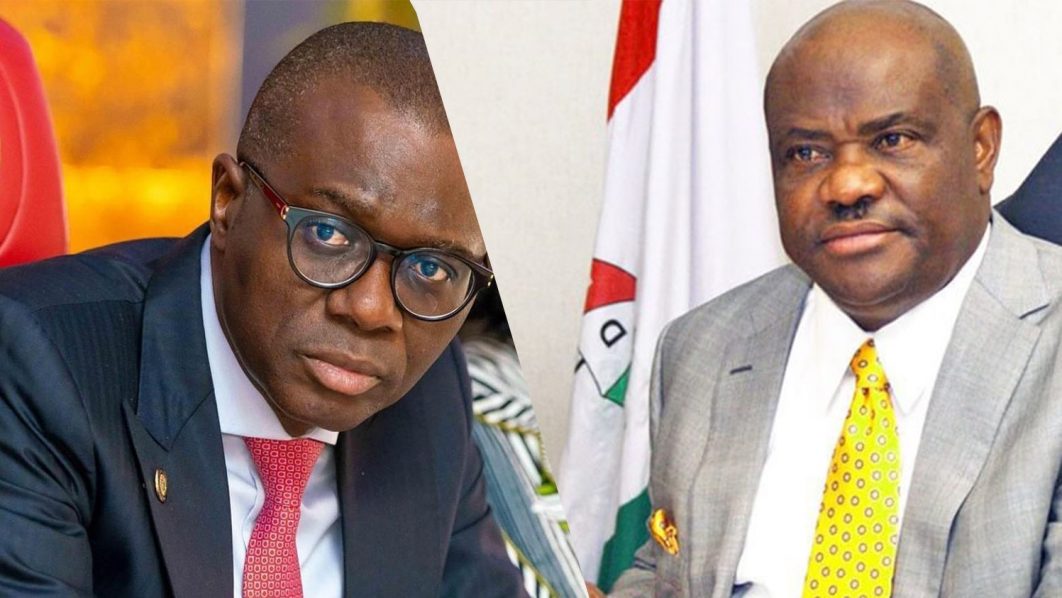
With a court ruling assigning the collection of Value Added Tax (VAT) to states, and with Rivers and Lagos states which contribute over 70 per cent of the VAT collectibles in the country enacting laws empowering them and not the federal government to collect VAT in their states, many economically disadvantaged states in Nigeria may not be able to meet their financial obligations as Abuja looks set to lose revenue from taxes.
Although the Court of Appeal in Abuja has temporarily halted the Rivers State government from collecting VAT until all legal disputes relating to the matter are resolved, the recent ruling by a Federal High Court in Rivers against the federal government on who had the authority to collect VAT has triggered a supremacy battle between Abuja, on the one hand, and on the other hand, Rivers and Lagos.
This judgment is not new because, in another ruling delivered on December 11, 2020, at another Federal High Court, the judge held that the powers of the National Assembly to make laws imposing taxes did not extend to VAT. The Federal Inland Revenue Service (FIRS) opposed that ruling and told states to continue remitting VAT to it.
The judgment on paper looks likely to favour states and local governments who currently receive 75% of the revenues generated from VAT.
However, this may not be the case as some state governments and local councils with low economic activities will have less to share, considering that VAT on federal government contracts included in domestic VAT will accrue to Abuja.
Some states will also need time to set up the processes required to collect VAT, a luxury they probably cannot afford in the short term, and a situation that could make them lose significant revenue and put them in more dire straits.
In 2019, VAT accounted for over 16.2% of the Gross Domestic Product (GDP), making it a significant contributor to the government’s total revenue. But most Nigerian states depend on funding from the Federal Allocation Account Committee (FAAC) due to their poor Internally Generated Revenue (IGR).
In addition, residents of these economically disadvantaged states would not be provided basic amenities by their state governments due to the paucity of income from VAT, while businesses may be forced to pay multiple taxes across the different states they operate.
On the plus side though, the federal government, according to a PricewaterhouseCoopers (PwC) report, could gain more, considering that about 27 per cent of revenues from VAT currently come from foreign non-import VAT.
In 2020, for instance, the federal government’s VAT from imports was 22.7 per cent, while foreign non-imports VAT was 27.4 per cent, and local VAT 49.8 per cent.
As a result, Abuja is likely to retain more than the 15 per cent it currently shares, while some states, such as Lagos, Rivers, Kaduna, Oyo and Kano, will likely benefit from this ruling, considering the significant level of economic activities in these states that can generate high VAT revenues.
In addition, the biggest beneficiaries may just be the advocates of true federalism and restructuring.
Until now, the Federal Inland Revenue Services (FIRS) had the responsibility of collecting VAT on behalf of the 36 states and the Federal Capital Territory.
This collected VAT, according to Section 40 of the VAT Act, is then shared at the rate of 15 per cent to the federal government, 50 per cent to the 36 states; and 35 per cent to the local governments (net of 4 per cent cost of collection by the FIRS).
According to data filed by the FIRS from the National Bureau of Statistics (NBS), Nigeria may have earned about ₦2.5 trillion from January 2020 to June 2021 at a 7.5 per cent VAT rate.
The breakdown shows that the FIRS collected about ₦1.53tr in 2020 with import VAT accounting for ₦348 billion (or 22.7 per cent), while foreign non-import VAT was ₦420bn (or 27.4 per cent) and local VAT amounted to ₦763bn (or 49.8 per cent).
In the first quarter of 2021, VAT collection was ₦496.39bn while it increased by ₦15.8bn in the second quarter to ₦512.25bn.
The breakdown of VAT generation for Q2 2021 shows that ₦187.4bn was from non-import VAT locally, ₦207.7bn from non-import VAT for foreign goods, while the balance of ₦117.1bn was from the Nigeria Customs Service VAT on imports.






